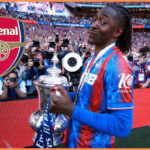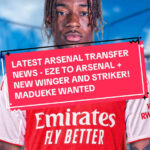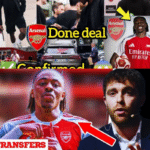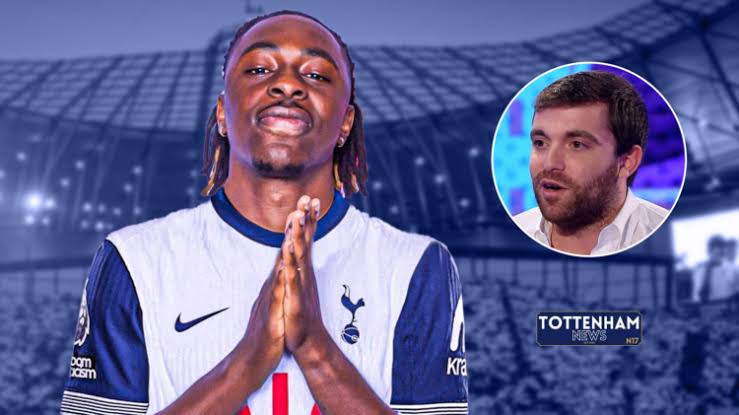Pep Guardiola drops bombshell on Erling Haaland and Omar Marmoush penalty mix-up that cost Man City the FA Cup
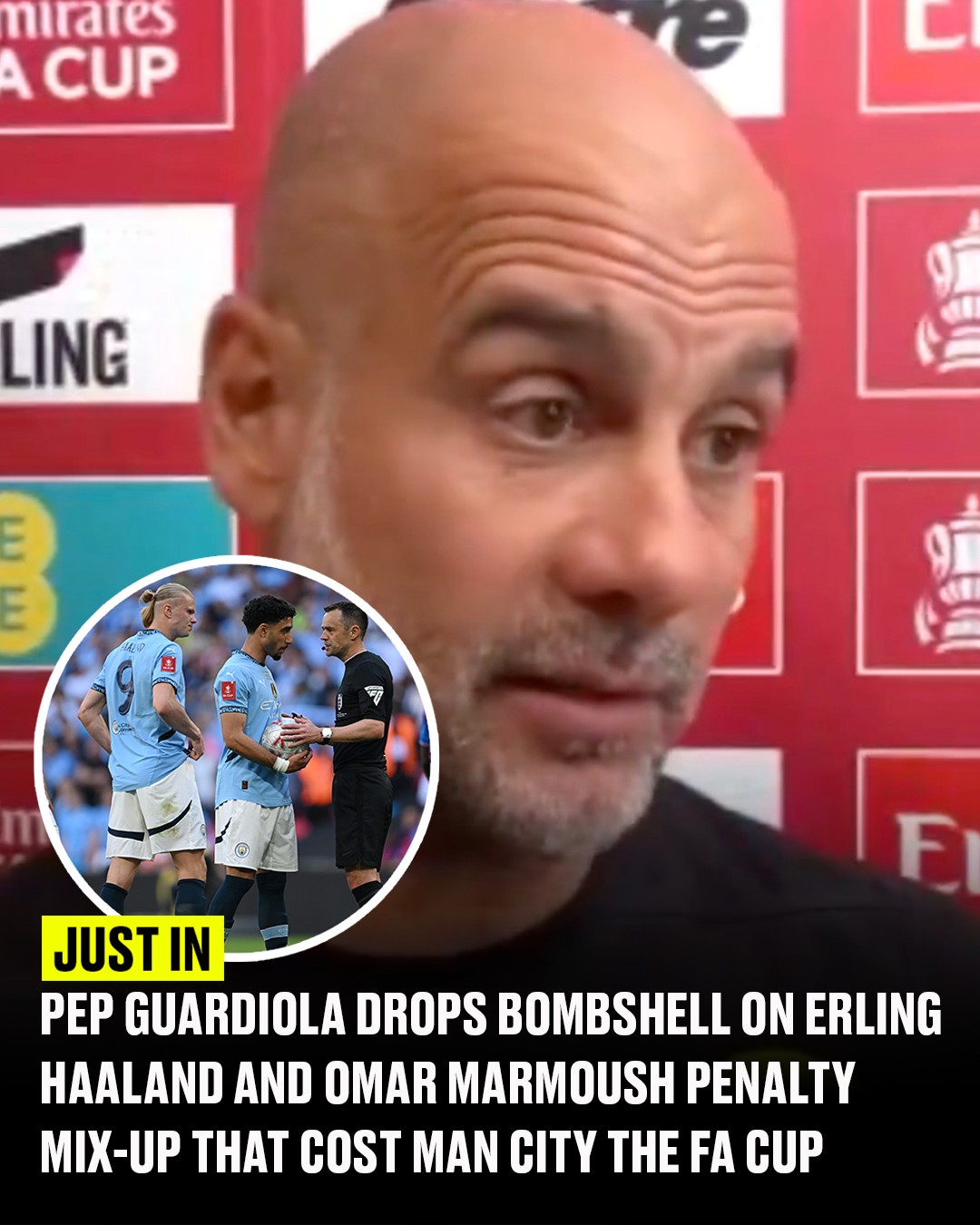
In a stunning upset at Wembley Stadium yesterday, Crystal Palace claimed their first FA Cup trophy in 35 years with a narrow 1-0 victory over Manchester City. The Eagles, who entered the match as clear underdogs, produced a defensive masterclass that frustrated City’s attacking talents and capitalized on their one clear opportunity through Eberechi Eze’s clinical first-half strike. However, the post-match analysis has centered not on Palace’s resilience but on a series of curious decisions from the Manchester City camp that may have cost them the trophy.
The Penalty Controversy That Changed Everything
The match’s pivotal moment arrived just before halftime. With Palace leading 1-0 through Eze’s goal, City won a penalty after referee Anthony Taylor ruled that Tyrick Mitchell had fouled Bernardo Silva in the area. What followed was a sequence that left pundits and supporters alike bewildered.
Erling Haaland, City’s designated penalty taker who has converted 17 penalties this season across all competitions, inexplicably handed the ball to summer signing Omar Marmoush. The Egyptian forward, who has taken just two penalties for City prior to the final, stepped up with confidence but telegraphed his intention. Palace goalkeeper Dean Henderson dove correctly to his right to make a spectacular save.
The drama didn’t end there. Haaland, perfectly positioned for the rebound, hesitated rather than shooting first-time, instead attempting a cut-back pass that was easily intercepted by Henderson. In the space of ten seconds, City had squandered not one but two golden opportunities to level the match.
“It was bizarre,” said former Manchester United striker Wayne Rooney, who was analyzing the match for BBC Sport. “In a cup final, you want your best penalty taker on the spot. There’s no room for sentimentality or sharing the spotlight. Haaland is the designated taker for a reason.”
The penalty incident sparked immediate speculation that the decision might have been pre-ordained by manager Pep Guardiola. However, in his post-match comments, Guardiola distanced himself from the controversy.
“I don’t know. I didn’t speak with them. They take the decision,” Guardiola told BBC Sport’s Kelly Somers. “It’s always [like that] around the penalties. I like the guys who take the initiative. And yeah, they decide.”
When pressed further during his press conference, Guardiola elaborated: “We didn’t speak, so they are things in the meetings that are already for them. For that moment, for the free-kicks and penalties, it’s about how you’re feeling, it’s how you feel. They saw that Omar was ready to take it. I think Omar took a lot of time with the ball – stop… take the ball and kick – to then put more pressure on himself. And Henderson made a good save.”
Guardiola’s explanation has done little to quell criticism, with many observers questioning why there wasn’t a clearer protocol in place for such a crucial moment. Former City defender Micah Richards suggested on television that the lack of clarity reflected a wider issue with City’s preparation for the final.
“If Pep truly had no input on who takes penalties in a cup final, that’s surprising,” Richards said. “These decisions should be made before players step onto the pitch. The confusion we saw doesn’t happen to well-prepared teams.”
Body language experts noted Haaland’s demeanor both before and after the penalty miss. The Norwegian striker, typically animated and engaged, appeared detached as Marmoush prepared to take the spot kick. After the save, cameras caught Haaland with his head down, walking back to the halfway line without offering encouragement to his teammate.
Tactical Decisions Under Scrutiny
The penalty drama wasn’t the only aspect of City’s performance that drew criticism. Guardiola’s selection and in-game management faced intense scrutiny, particularly his decision to deploy both Savinho and Jeremy Doku in the same starting lineup despite their similar profiles.
With Jack Grealish and Phil Foden unavailable due to injuries, Guardiola opted for raw pace on both flanks. However, this approach played into Palace’s hands, as manager Oliver Glasner had set up his team to defend narrowly and force City wide. Both Savinho and Doku frequently found themselves doubling up against Palace’s disciplined full-backs but lacking the creativity to break through.
“Playing Savinho for that long didn’t help. Offers nothing but running into the first man,” read one social media comment that echoed the sentiments of many City supporters.
Another fan pointed out: “Pep single handedly losing this game. Wasn’t the right matchup to start both Doku and Savinho.”
The criticism intensified as the match progressed into the second half with Guardiola reluctant to make changes despite clear evidence that his initial approach wasn’t working. Savinho remained on the pitch until the 75th minute despite an ineffective performance, while Bernardo Silva, who appeared visibly fatigued after the hour mark, wasn’t substituted until the 88th minute.
“88th minute is when he’s finally taking off Bernardo honestly you deserve this loss Pep,” wrote one frustrated City supporter.
The late introduction of teenage sensation Nico O’Reilly provided a brief spark, with the youngster creating City’s best chance of the second half, only to drag his shot wide when well-positioned. Many questioned why O’Reilly wasn’t introduced earlier, especially given City’s struggles to break down Palace’s organized defensive block.
Henderson’s Controversial Escape
Adding to City’s frustrations was a contentious incident involving Palace goalkeeper Dean Henderson. Midway through the second half, Henderson appeared to handle the ball outside his penalty area to prevent a City attack. Despite vociferous appeals from City players and staff, referee Taylor waved play on, and VAR did not intervene to suggest a review.
Had Henderson been penalized, it would likely have resulted in a red card for denying a clear goalscoring opportunity. The incident further fueled the narrative that luck was against City on the day, though Guardiola notably refused to blame the officials in his post-match comments.
“We must look at ourselves first,” he said. “When you miss chances like we did today, you cannot expect to win trophies.”
Palace’s Tactical Masterclass
While much of the focus has been on City’s shortcomings, credit must be given to Crystal Palace and their manager Oliver Glasner, who executed their game plan to perfection. Since taking over in February, the Austrian coach has transformed Palace from relegation candidates to cup winners in just three months.
Palace’s approach was based on a solid defensive foundation, with Joachim Andersen and Marc Guéhi forming an impenetrable partnership at the heart of their defense. The midfield trio of Adam Wharton, Will Hughes, and Jefferson Lerma provided both protection and transition opportunities, while Eberechi Eze’s moment of brilliance made the difference on the scoresheet.
Eze’s goal came in the 27th minute after a swift counter-attack. Michael Olise beat Rico Lewis on the right wing before delivering a precise cut-back to Eze, who took one touch to set himself before curling a sublime finish beyond Ederson into the far corner. It was a goal worthy of winning any final, showcasing the technical excellence that has made Eze one of the Premier League’s most sought-after talents.
Palace’s victory was a testament to Glasner’s tactical acumen. Rather than trying to match City at their own possession game, Palace accepted they would see less of the ball but focused on maintaining shape and exploiting transitions. They limited City to just three shots on target despite allowing them 68% possession, a remarkable defensive achievement against one of Europe’s most potent attacking forces.
“We knew we couldn’t outplay them for 90 minutes,” Glasner said afterward. “But we believed we could outfight them, and that’s exactly what we did. Every player executed their role perfectly.”
City’s Season Hanging in the Balance
The FA Cup final defeat compounds what has been a challenging season for Manchester City. After winning the treble last season, expectations were sky-high, but the reality has been far more sobering. Already eliminated from the Champions League at the quarter-final stage by Barcelona and now without the FA Cup, City face the prospect of ending the season without a major trophy for the first time since 2016/17.
More worryingly for Guardiola’s side, they currently sit sixth in the Premier League with just two games remaining. While they have a game in hand over the teams above them, City face a real battle to secure Champions League qualification for next season. They must win their remaining fixtures against Bournemouth (home) and Fulham (away) to guarantee their place in Europe’s elite competition.
“We must recover quickly,” Guardiola acknowledged. “The season is not over, and we have two finals left in the Premier League. I believe in these players, and I know they will respond positively to this disappointment.”
The potential absence of Champions League football would have significant implications for City’s finances and transfer plans. It could also raise questions about the futures of key players, with speculation already swirling around Haaland’s commitment should City fail to qualify.
Haaland’s Future Under Scrutiny
The penalty incident has inevitably led to renewed speculation about Erling Haaland’s future at Manchester City. The Norwegian has been linked with Real Madrid in recent months, and his uncharacteristically subdued performance in the final will do little to silence the rumors.
Haaland’s body language throughout the match, particularly after the penalty miss, suggested a player struggling with confidence. Despite having scored 34 goals in all competitions this season, he has now gone five games without finding the net—his longest drought since joining City in 2022.
Former City striker Sergio Agüero, watching from the stands at Wembley, told Spanish media: “Erling looks frustrated. When a striker loses confidence, everything becomes more difficult. He needs support from his teammates and manager right now.”
However, Guardiola was quick to defend his star striker: “Erling has been exceptional for us all season. All forwards go through periods where the goals don’t come. His contribution is much more than just scoring.”
Guardiola at a Crossroads
The defeat also raises questions about Pep Guardiola’s future at Manchester City. The Catalan is in his ninth season at the Etihad Stadium, making this his longest tenure at any club. With his contract set to expire at the end of next season and no news yet of an extension, speculation has begun about whether this remarkable chapter might be nearing its conclusion.
Guardiola appeared uncharacteristically deflated in his post-match press conference, admitting that Palace “deserved their victory” and that his team had “lacked the spark needed to win a cup final.” These are unusual admissions from a manager renowned for his unwavering belief in his tactical approach.
When asked directly about his future, Guardiola was non-committal: “Now is not the time for such discussions. We have important matches remaining this season, and that is where our focus must be.”
Should City fail to qualify for the Champions League, it would represent the first significant backward step of the Guardiola era. How the club’s hierarchy and the manager himself would respond to such a setback remains to be seen.
A New Dawn for Palace
While City contemplate what might have been, Crystal Palace’s victory marks the dawn of an exciting new era at Selhurst Park. The club’s American co-owners, led by chairman Steve Parish and supported by investors John Textor and Josh Harris, have steadily built a squad capable of competing with the Premier League’s elite.
This FA Cup triumph is the culmination of careful planning and strategic investment. Palace’s academy has produced talents like Tyrick Mitchell, while their recruitment team has unearthed gems such as Michael Olise and Eberechi Eze. The appointment of Glasner, initially seen as a gamble after his difficult spell at Eintracht Frankfurt, has proven inspired.
“This is just the beginning,” declared Parish in the aftermath of their victory. “We’ve shown we can compete with the very best on our day. The challenge now is to build on this success and establish Palace as a consistent force in English football.”
For the Eagles’ supporters, many of whom remember the club’s financial troubles and near-extinction in the early 2000s, this victory represents the realization of a dream many thought impossible. The scenes of celebration at Wembley, with Palace legends like Ian Wright and Mark Bright joining the current squad on the pitch, captured the emotional significance of the achievement.
Conclusion: A Final That Will Live Long in Memory
The 2025 FA Cup final will be remembered for different reasons depending on one’s allegiance. For Crystal Palace, it marks their greatest achievement since the 1990 final, a day when years of careful building finally paid dividends. For Manchester City, it represents a painful lesson in the fine margins that separate triumph from disappointment at the highest level.
The penalty incident involving Haaland and Marmoush will be debated for years to come, joining the pantheon of famous FA Cup final moments that altered the course of the match. Whether it was player initiative or managerial indecision that led to Marmoush taking the spot kick, the consequences were significant.
As the two teams departed Wembley—Palace in jubilation, City in dejection—the contrasting emotions encapsulated the beautiful unpredictability of cup football. For all City’s resources and talent, they were undone by a combination of Palace’s resilience and their own questionable decision-making.
The Eagles soared at Wembley, while City’s pursuit of silverware crashed to earth. Football, as always, offered no guarantees—only the promise that glory awaits those who seize their moment when it arrives. On this occasion, it was Crystal Palace who grasped their opportunity with both hands, etching their name into FA Cup folklore in the process.

